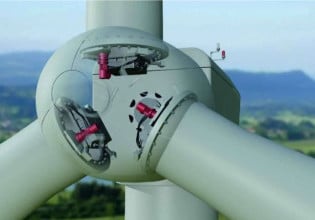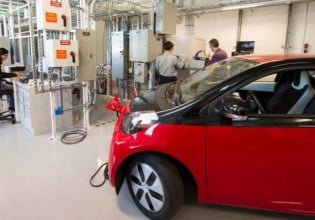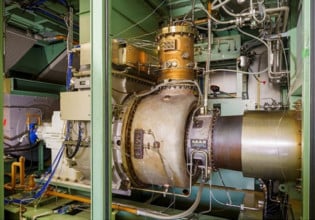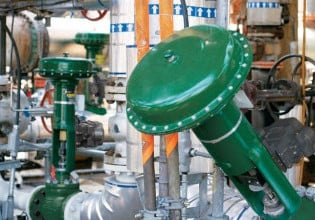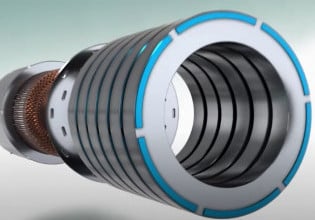Chemical engineers at the University of Pennsylvania have developed a prototype fuel cell that runs on a readily available liquid fuel source, in this case ordinary diesel fuel.
The Penn fuel cell is the first to run directly on hydrocarbons, without requiring complicated reforming into hydrogen either within the device itself or at specialized filling stations. Generating electric power through controlled electrochemical reactions rather than combustion, its only emissions are water, carbon dioxide and heat.
Smaller than a penny, the prototype fuel cell developed by Raymond Gorte, John Vohs, graduate student Hyuk Kim and postdoctoral researcher Seungdoo Park, operates in a furnace set at 700 degrees C. A commercial, self-contained fuel cell would ideally generate that heat itself using the fuel placed in it.
"We are excited by the progress that Professor Gorte and his colleagues are making in the area of direct oxidation of hydrocarbon fuels using solid-oxide fuel cells," said David Bauer, team leader for the Solid-Oxide Fuel Cell project at the Ford Research Laboratory in Dearborn, MI. "The ability to utilize conventional fuels with little or no reforming is particularly important in transportation applications where fuel storage and system packaging are such critical issues."


